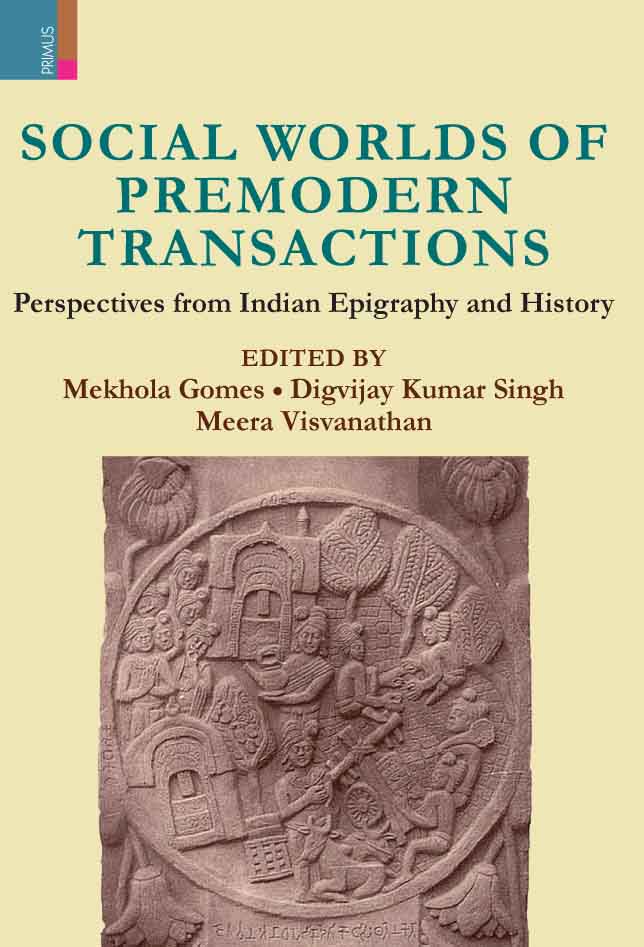
Social Worlds of Premodern Transactions: Perspectives from Indian Epigraphy and History
EDITORS- Mekhola Gomes, Digvijay Kumar Singh and Meera Visvanathan
| HB ₹1150. $49.95. ₤42.95 |
||
INFORMATION
- EDITORS : Mekhola Gomes, Digvijay Kumar Singh, Meera Visvanathan
- HB ISBN : 978-93-90430-66-6
- POD ISBN : 978-93-90430-67-3
- Year : 2021
- Extent : 224
- Discount available on checkout
- Usually dispatched within 3 to 5 working days.
Focusing on inscriptional materials from South Asia, the essays in Social Worlds of Premodern Transactions bring together a range of new perspectives on social and economic history. They show how exchange is not only about commodities or items, but also about interactions and relationships between people. The essays span a broad time frame, starting from the early historic and extending into the medieval. They range from studies of sites and micro-regions to translocal communities and transcontinental voyages. Through a close engagement with inscriptions, what is offered is a history that views South Asia as a region framed by diverse, overlapping, and complex transactions. This volume will be of interest to students and scholars of premodern South Asia. It will also be useful to anyone interested in exploring issues of social and economic history across regions and time-periods.
The Editors
Mekhola Gomes is a Postdoctoral Fellow at the Department of Historical Studies and the Centre for South Asian Civilizations at the University of Toronto, Mississauga. As a scholar of the Indian Ocean world focusing upon premodern South and South-EastAsia, Gomes specializes in social history, gender, epigraphy, and religion.
Digvijay Kumar Singh teaches at Cotton University, Guwahati, Assam, and is interested in the economic history of premodern South and South-East Asia, focusing particularly on the circulation of commodities, and networks across the
Indian Ocean.
Meera Visvanathan teaches at the Department of History, Shiv Nadar University. She is interested in the Brahmi inscriptions of the early historic period and the social history of early India, with a focus on themes of caste and gender.
Table of Contents
| Preface |
| Introduction |
| 1. The First Land Grants: The Emergence of an Epigraphic Tradition in the Early Deccan |
| 2. Decentring the King: Kinship and Ideations of Power in the Ikxvaku Kingdom |
| 3. Representations of Kingship: Epic Imagery in Kadamba Inscriptions |
| 4. Ways to the Vajrasana: The Tibetan Approach (eleventh-Thirteenth centuries ce) |
| 5. Temple, Trader and peptha in the inscriptions of the Srikakulam-Vishakhapatnam Region (ad 1000-1500) |
| 6. Doors and Walls of Mosques: Textual longue-durée in a Premodern Malabari Inscription |
| 7. Patterns of Transactions at Malabar Ports, c. Eleventh-Fourteenth Centuries ce |
| Bibliography |
| Notes on Editors and Contributors |
| Index |




